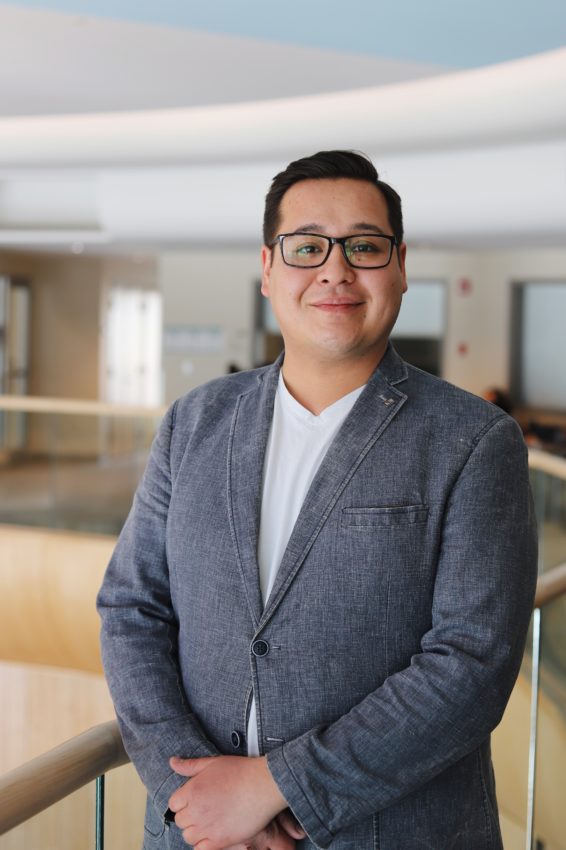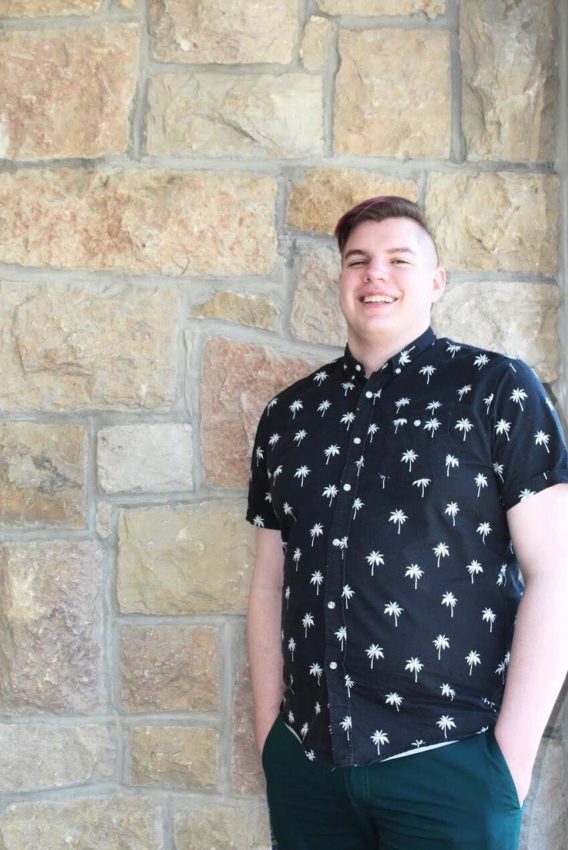As the academic year comes to a close, the University of Saskatchewan Students’ Union executive members are preparing to pass their roles onto incoming executives.
Part one, which was published last week, featured USSU president Autumn LaRose-Smith and Jamie Bell, vice-president operations and finance. This part two features the vice-president academic and vice-president student affairs.
Vice-president academic Kiefer Roberts

Roberts’ platform points during last year’s elections highlighted student advocacy, mental health, accountability in Indigenization and decolonization, and addressing the issue of student loan interests.
Roberts says the USSU always advocates for students at the “many different tables” he is invited to, as well as with senior leadership at the university.
The USSU has also worked in mental health advocacy by bringing the Empower Me service to the university, says Roberts. Empower Me, which is offered through Studentcare, offers 24/7 counselling services for students at the university through video or telephone.
Roberts’ work in Indigenization and decolonization has been in ensuring that processes include student consultation and Indigenous voices.
“If there are topics being discussed in any tables that I’ve been in, I ensure that they’re consulting students on issues like this and also inviting more different Indigenous voices to the different tables,” Roberts said.
Roberts says his role has been “impacted significantly” by COVID-19.
“Everybody’s remote now so students are a little more dispersed throughout the province,” Roberts said.
The topic of student loan interests is on the USSU’s External Affairs Committee’s radar. Although Roberts himself is not a part of the committee, he says that the union’s provincial asks are important and that he looks forward to the upcoming meetings with the provincial government.
A positive change that came with the remote learning environment for Roberts is that he met with students more regularly than in pre-pandemic times, especially in helping students with the reported increased academic grievances this year.
“I’m very thankful for the students that have reached out to me and also looking forward to the students that will reach out to me before my term is up,” Roberts said.
Roberts says he does not mind working from home and appreciates holding his position. He says that “one year is never enough time” but he encourages students to reach out before his term is over.
As the year wraps up, Roberts looks forward to “catching up with friends, family and loved ones” in his home town of Stanley Mission.
He says that the next executive member in his position will have to deal mainly with the issue of remote learning.
“I believe [first term] was like a pilot to see how things would go and there’s been improvements with online learning but of course there’s more work to be done with improving online classes,” Roberts said.
In the meantime, Roberts plans on continuing to assist students as vice-president academic.
“Plain and simple, [I’m] just helping and assisting students in any way that I can,” Roberts said. “That’s what I was elected to do and that’s what I’ll do until my term is up on April 30.”
Vice-president student affairs Jory McKay

For fourth-year anthropology and history student McKay, COVID-19 has “massively changed” his role “more than any other executive.”
During his campaign last year, McKay ran on a platform of accessibility through resources and harm reduction, inclusive advocacy and promoting sustainable practices.
On the topics of harm reduction and accessibility, McKay says he has been working with the campus residences to get naloxone kits along with training for residence staff members.
His efforts for inclusivity include working with the USSU centres to promote mental health and wellness along with queer inclusion.
On sustainable practices, McKay’s points to his involvement in the Sustainability Committee and the Student Sustainability Coalition.
The accessibility of online formats has been a big advantage for him during his term, since being in the office would have usually involved “running back and forth” between meetings that would take place consistently throughout the week.
“We’re usually harder to access when we’re in our offices, versus when we’re actually online. People can email us or call us at any time and get in contact with us almost immediately,” McKay said.
On the other hand, it makes developing connections between students a lot more difficult, he says.
“At in-person events, it’s a lot easier to introduce folks to each other and meet people for the first time… We’re continuing to try to facilitate but it is a lot harder in a digital context,” McKay said.
For the remainder of his term, McKay will be focusing mostly on sustainability. He is also preparing to help the next executive member in his role, collaborating with the Women’s Centre for Women in Leadership Week, and he is involved in the USSU’s town halls.
McKay still wishes he had “more time to do everything,” but he is planning to do more after his term. He hopes to find permanent employment, get through his last year of university and continue his work with YXE Drag Collective to do a show tour across the province.
To the next executive in his position, McKay says they will have to focus on the transition back to campus.
“I think somebody in my position is going to have to really fight and work to help students who are still doing the hybrid-model setting,” McKay said.
“A big part of my goal [is] to make sure I leave the person coming after me a solid structure … so they’re fully able to work on that when the situation comes.”
—
Fiza Baloch | Staff Writer
Photos: Supplied